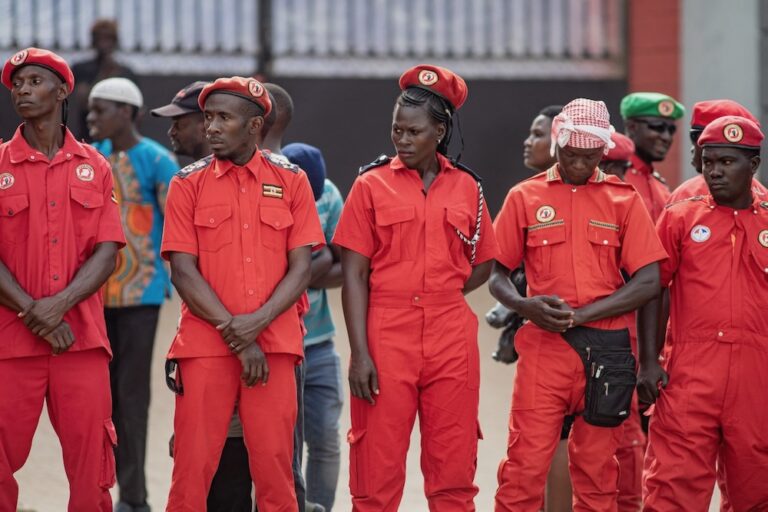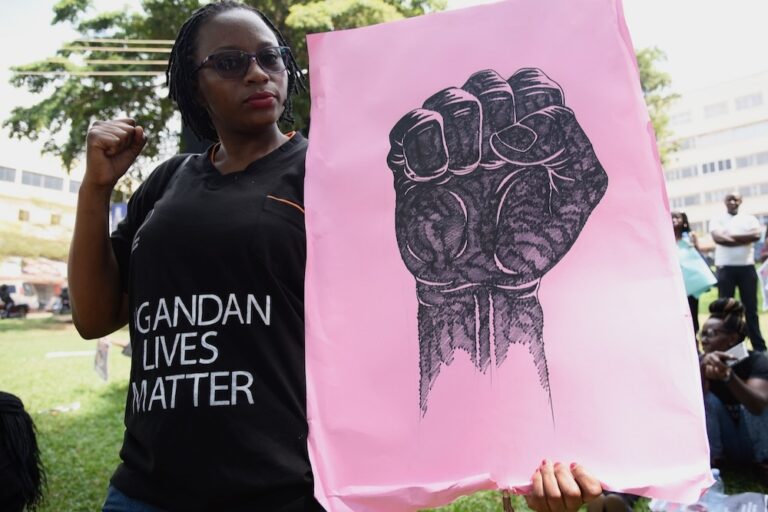(CPJ/IFEX) – The following is a 7 March 2006 CPJ press release: Ugandan police harass journalists over political talk show New York, March 7, 2006 – The Committee to Protect Journalists is very troubled by the recent harassment of journalists at the independent radio station Choice FM in the town of Gulu, in Uganda’s war-scarred […]
(CPJ/IFEX) – The following is a 7 March 2006 CPJ press release:
Ugandan police harass journalists over political talk show
New York, March 7, 2006 – The Committee to Protect Journalists is very troubled by the recent harassment of journalists at the independent radio station Choice FM in the town of Gulu, in Uganda’s war-scarred north. Police accused the station of being a security threat after a talk show last Wednesday featuring opposition and ruling party candidates in Ugandan municipal elections, according to local journalists.
During the broadcast, the ruling party candidate and incumbent for the Gulu district seat, Walter Ochora Odoch, traded barbs with opposition members and opponent Norbert Mao, who went on to win the election. The opposition candidates harshly criticized local civilian and military authorities for alleged corruption and mistreatment of detainees, according to local journalists.
After the program aired, a local court issued a warrant allowing police to search the station’s premises, News Editor Sam Lawino told CPJ. Police confiscated audiotapes and disks and ordered the station to turn over a copy of its license, its programming policy guidelines, and a recording of the broadcast. Managers at the station sought to comply with the order, but they did not have a recording of the broadcast because their equipment malfunctioned, Lawino said. Authorities have not publicly explained the basis for their search and subsequent actions.
On Friday, police arrested Program Manager Martin Ojara Mapenduzi and held him overnight without charge. He was released after paying bail. Police have since threatened to prosecute Mapenduzi and other journalists at the station on charges of failing to turn over all of the documents that were sought.
“It’s outrageous that police are harassing journalists for airing the sort of robust political debate essential to a democracy,” said Ann Cooper, executive director of CPJ. “This harassment must cease immediately, and all journalists in Uganda must be free to do their jobs without fear of reprisal.”
Lawino said that military authorities in Gulu had summoned Mapenduzi in late 2005 and pressured him to stop airing political talk shows on Choice FM. Several local journalists told CPJ they believed police were acting under pressure from the military.
CPJ is a New York-based, independent, nonprofit organization that works to safeguard press freedom worldwide. For more information, visit http://www.cpj.org.


